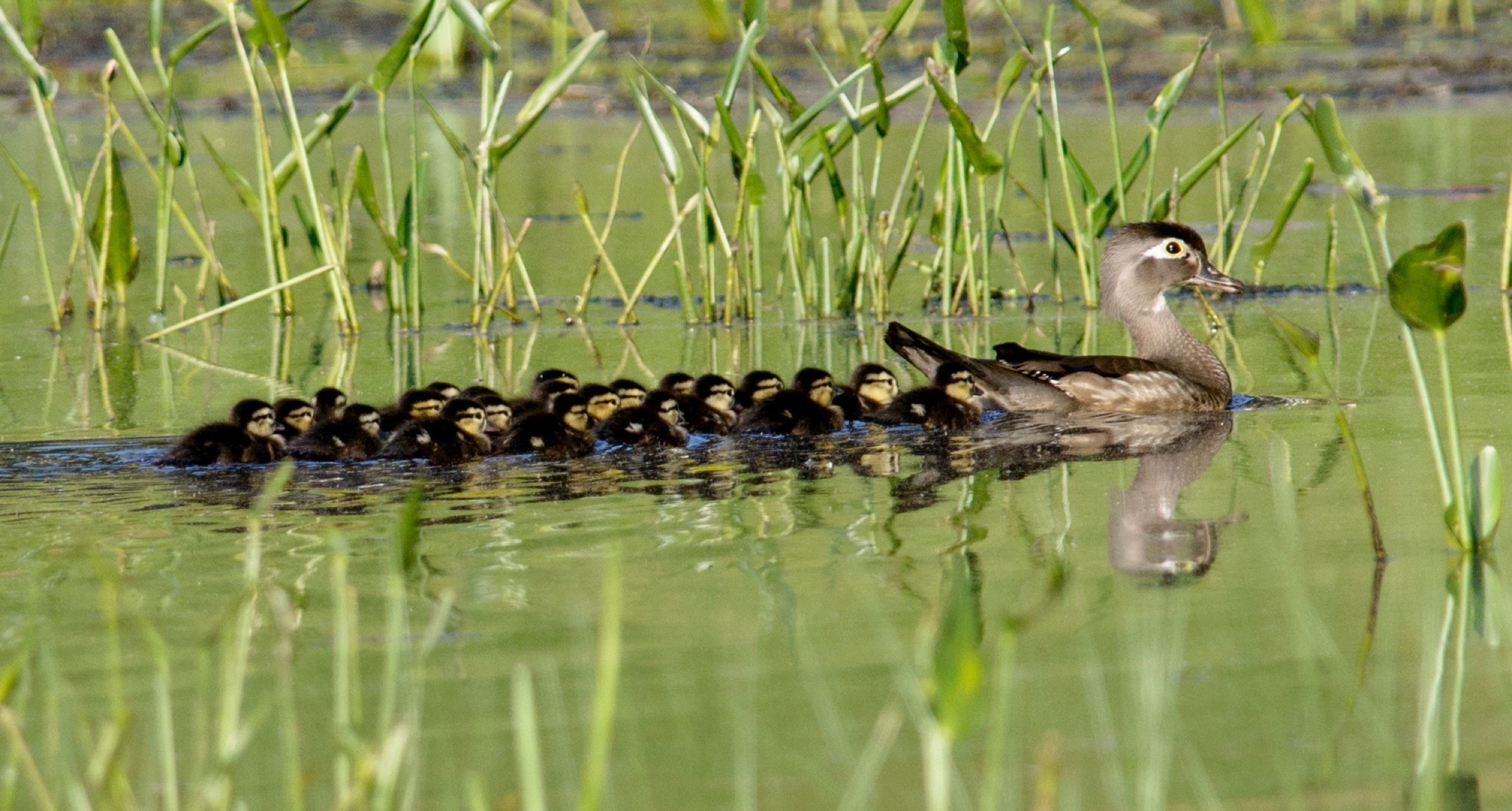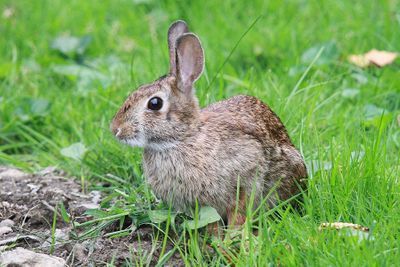
Wood Duck with ducklings by Ed Hughes
Published March 26, 2021
Audubon Wildlife Refuges are Magical Places in Spring
Please help protect vulnerable young wildlife species by leaving pets and bikes at home.
Like clockwork in spring, the annual rites of nature commence. Songbirds return from migration. Mammals wake from their winter slumbers, and the thawed ponds and vernal pools suddenly are filled with life. From late March until early July, many birds, mammals, reptiles, amphibians, and insects sing, court, mate and reproduce on Audubon wildlife refuges. Audubon owns and protects over 9,500 acres of habitat in Rhode Island for these birds and animals. Visitors are welcome year-round to enjoy the trails at no charge and are asked to follow simple guidelines to keep both people and wildlife safe.
Audubon properties and trails are magical places in the spring, but the newly hatched birds on and very young mammals can be particularly vulnerable. Audubon does not allow dogs on or bikes any of their properties in an effort to protect wildlife. “Many people don’t realize that dogs can substantially stress wildlife and they are most vulnerable during nesting and migration,” explains Senior Director of Conservation Scott Ruhren. “Pregnant wildlife and newborn animals do not have the energy to repeatedly expend trying to avoid dogs. In fact, the scent of your dog will linger well after your visit to the trails. Some wildlife will continue to avoid an area for prolonged periods, reducing their available habitat.” Dogs can be especially threatening to those creatures that nest on the ground or are young and vulnerable. And there are many!
Nothing inspires a chuckle more than a mother woodchuck with two or three little gray/brown furry kits following close behind. Babies are born in April or May in the woodchuck’s labyrinth-like burrow. When they reach about a month in age, they emerge to begin feeding around the entrance of the burrow. By the time they are weaned at over two months old, look for them to follow their mother around from one plant food source to another.
Wood Ducks are one of the few species of ‘perching’ ducks in Rhode Island and they make their nests in tree cavities or specially-made nesting boxes – usually over water. When the ducklings hatch, momma will fly out of the nest and call for her babies. One by one they jump out of the cavity and fall to the ground or into the water. Babies have been known to fall well over 100 feet and be unhurt. Once out of the nest, they do not return, but instead, follow their mother to different feeding grounds.
Songbirds jump out of the nest, or fledge, when their wing feathers grow in. They spend a few days hopping about and practicing flying and foraging before they are off on their own completely. The parent birds continue to feed the youngster on the ground until they learn to feed themselves.
Audubon looks to protect wildlife and give birds and animals the best chance possible to survive. You can help by enjoying the trails quietly, observing or photographing nature from a distance, and leaving pets and bikes at home as not to scare or disturb the new life that arrives in spring. For a list of Audubon wildlife refuges that are open to the public, trail maps, and directions, visit asri.org/hike.
All Audubon Society of Rhode Island land is protected. Our public wildlife refuges are for the protection of wildlife, and we encourage everyone to enjoy them by following simple rules. Please respect the natural habitats of Audubon's refuges and avoid disturbing their inhabitants. Also, respect the rights of others when using the trails.
Permitted (and encouraged!) on Audubon trails: hiking, observing wildlife, bird watching, photography.
Not permitted on the trails in order to protect wildlife: Dogs, horses and other pets, motorized vehicles and bicycles, hunting, fishing or trapping, littering, camping, alcoholic beverages and smoking, collecting plants or other natural objects, geo-caching or letterboxing, jogging, excessive noise.
Thank you for helping us to protect nature places and the birds and animals that call it home.


















